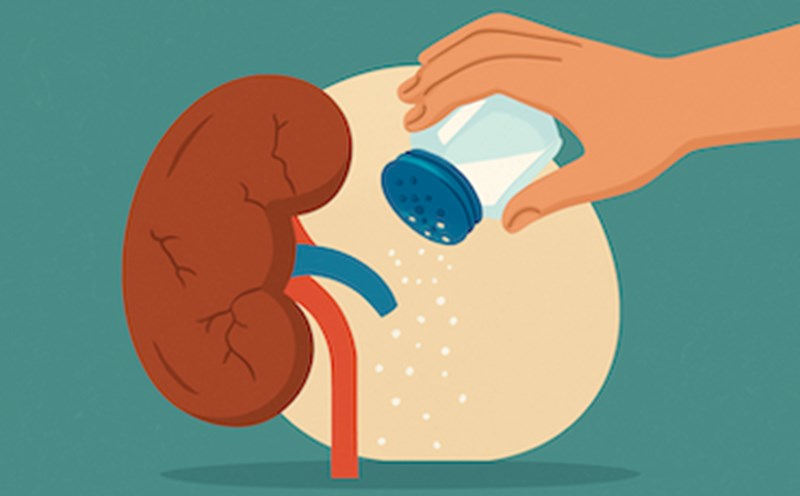Intermittent fasting is becoming more and more popular in the community, especially among those who want to improve their health, lose weight and control chronic diseases. However, many people are concerned about the potential effects that this diet can cause to internal organs, including the kidneys, an important organ in blood filtration and excreting toxins.
Are kidneys affected when fasting?
Nutritionist Pooja Singh from ShardaCare - Health City (Noida, India) said that the kidneys play a role in maintaining fluid balance, regulating electrolytes and removing toxins from the body. Unscientific intermittent fasting, such as skipping long meals, drinking less water or eating carelessly, can increase the pressure on the kidneys, especially in people with a history of diseases of this organ.
According to experts, when fasting, the body can produce a lot of ketones and uric acid, substances that the kidneys need to process. If this burden persists, it can lead to impaired kidney function, especially in vulnerable people such as people with chronic kidney disease, diabetes or a diet rich in protein.
Who needs to be cautious when fasting?
Nutritionist Pooja Singh warns that intermittent fasting is not the right solution for everyone. Some subjects should be cautious or consult experts before applying, including:
People with chronic kidney disease (CKD)
People with diabetes, especially people taking insulin or drugs to lower blood sugar
People at high risk of kidney stones or dehydration
People who follow a diet rich in protein when fasting
How to intermittently fast safely for the kidneys?
Experts offer some tips to help reduce the impact on the kidneys during fasting:
Drink enough water: Maintaining adequate water intake during both fasting and eating helps support kidney filtering function.
Eat a balanced diet: Prioritize healthy foods like green vegetables, whole grains, fruits, and lean proteins.
Avoid excess protein and salt: Foods high in protein or sodium can overload the kidneys.
Listen to your body: Dizziness, dark urine, fatigue can be signs that the kidneys are under pressure.
Note
Intermittent fasting is not necessarily harmful to the kidneys if done properly and suitable for each person's physical condition. For healthy people, this can be an effective method of health support. However, for those with underlying medical conditions or undergoing medication, fasting should be carefully considered and consulted with a doctor before applying.











